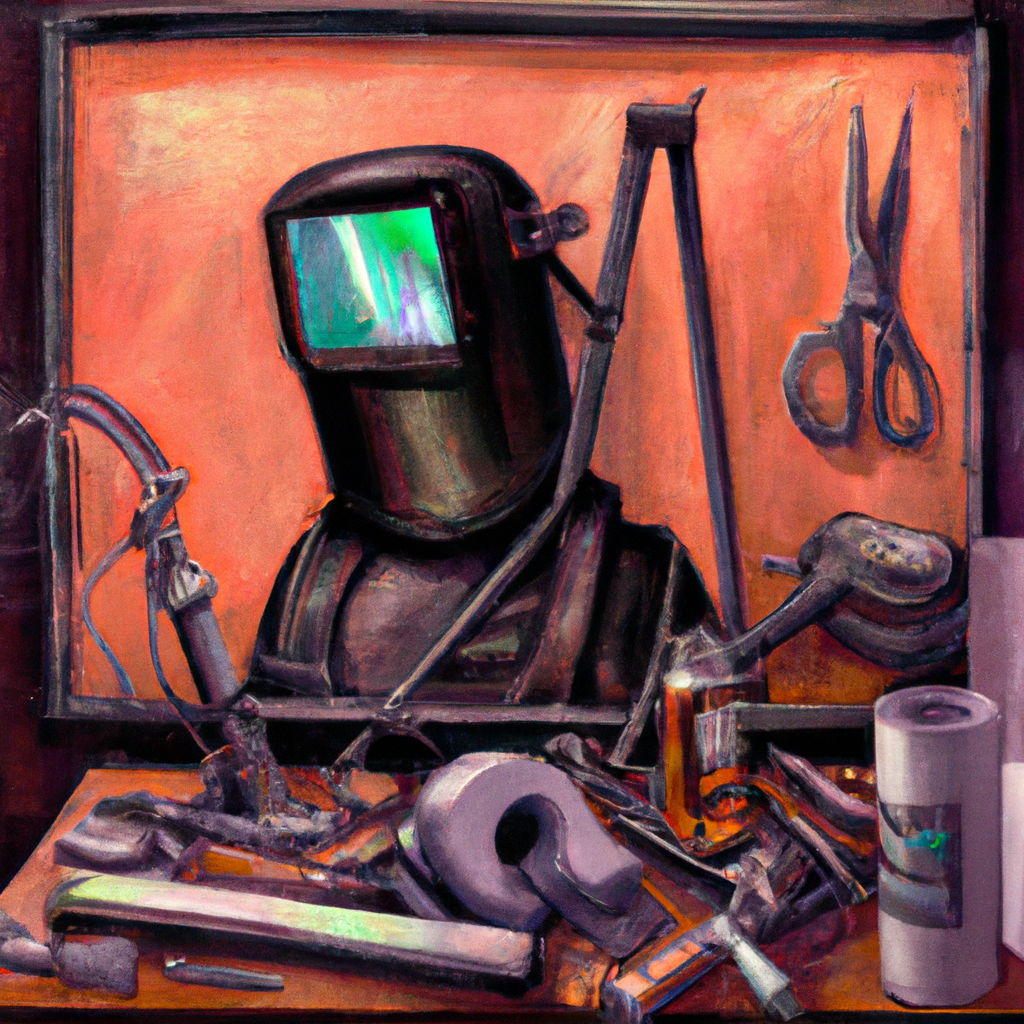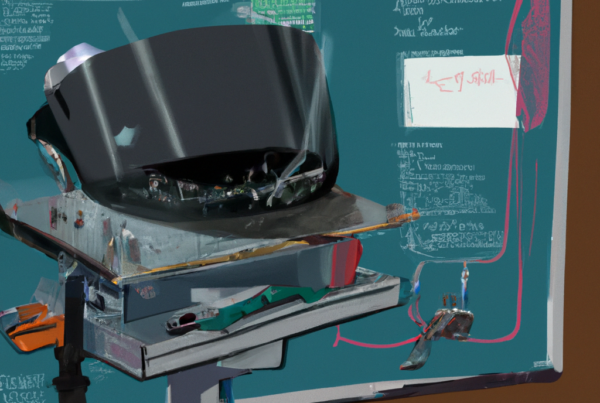For those of us wondering if we’re too old to become a welder, the answer is a resounding no! It doesn’t matter how old you are, if you have the energy and enthusiasm to learn welding, you can do it. Whether you’re in your 20s, 50s, or 70s, welding can be a great career choice for anyone. It offers many benefits, not the least of which is being able to work with your hands and create something of lasting value. So don’t let age be a barrier, if you have the passion and dedication, you can become a welder.

1.What age requirements are needed to become a welder?
Welders must be at least 18 years old in order to become certified. Some employers may require welders to be at least 21 years old, depending on the job and the type of welding. Generally, welders can work until they are around 80 years old or even older, depending on their physical abilities. There is no upper age limit for becoming a welder, so age is not a barrier for those looking to enter this profession.
The American Welding Society (AWS) states that there are no age requirements for becoming a welder, so long as the person is physically capable of performing the job. Many welders are able to work into their late 70s and early 80s. It is important to note, however, that welders will need to stay up-to-date on safety regulations and welding techniques in order to keep current with industry standards.
Welders should also be aware that some employers may be hesitant to hire older welders due to potential health and safety concerns. However, there are many employers who are more than happy to provide older welders with job opportunities. It is important for welders to stay physically fit and to stay current on safety protocols and welding techniques in order to remain competitive in the job market.
In conclusion, there is no upper age limit for becoming a welder, and many welders are able to work into their late 70s and early 80s. Welders should be aware that some employers may be hesitant to hire older welders due to potential health and safety concerns, but there are many employers who are more than happy to provide older welders with job opportunities. With the right training and experience, welders of any age can find success in this field.
2.What welding skills are essential for a successful career?
There are several essential welding skills necessary for a successful career. These include:
- The ability to read and interpret blueprints and technical drawings.
- Knowledge of different welding techniques such as oxy-fuel, MIG, TIG, and arc welding.
- The ability to use a range of welding tools and equipment.
- Knowledge of safety procedures and hazards associated with welding.
- The ability to work with a variety of metals and alloys.
- The ability to work with precision and accuracy.
- Good problem-solving skills.
These skills are essential for anyone looking to pursue a career in welding. Age is not a factor when it comes to acquiring these skills; as long as someone is willing to learn and practice, they can become a successful welder.
3.What qualifications and certifications do welders need?
Welders are highly skilled professionals who must possess certain qualifications and certifications in order to work safely and effectively. Generally, welders should possess a high school diploma or equivalent, and must also complete an apprenticeship program before they can become certified. Additionally, welders must possess the following qualifications and certifications:
- Certification in welding safety
- Knowledge of industry standards and codes
- Experience in working with welding tools and equipment
- Ability to read and interpret blueprints, drawings, and specifications
- Knowledge of welding techniques, such as gas welding, arc welding, and oxy-acetylene welding
Welders must also stay up to date with new technologies, safety protocols, and industry standards. Although there is no age limit for becoming a welder, older individuals may find it more difficult to obtain the necessary qualifications and certifications. Therefore, if you are considering a career as a welder, it is important to ensure that you have the mental and physical capabilities to complete the necessary training and meet the requirements.
4.What type of welding can I do at my age?
Am I too old to become a welder? The answer to this question depends on a variety of factors, including your age, physical condition, and welding experience. Generally speaking, anyone over the age of 18 can become a welder. However, age is not the only factor to consider.
Welders must have the physical capability to lift heavy objects, such as welding tanks and tools. They must be able to stand for long periods of time and work in uncomfortable positions. Therefore, it is important to determine if your physical condition is suitable for welding before attempting to pursue the career.
The type of welding you can do depends on your experience. If you are new to welding, you may want to start with basic welding techniques, such as arc welding, oxy-fuel welding, and MIG welding. These types of welding require minimal training and can be used for a variety of applications.
If you have more experience, you may want to explore other welding techniques, such as TIG welding, plasma arc welding, and underwater welding. These types of welding require more advanced training and experience, and they can be used for a variety of industrial, commercial, and military applications.
No matter your age, welding can be a rewarding and challenging career. If you have the physical capability and the necessary experience, you can pursue welding at any age. However, it is important to take the necessary precautions and ensure that you are physically and mentally prepared to handle the demands of the job.
5.What safety measures should I take when welding?
Safety should always be the number one priority for any welding project. Here are some key safety measures to remember when welding:
- Always wear proper protective clothing such as a welding helmet, gloves, and a face shield.
- Make sure you have adequate ventilation in the area you are working in.
- Always check your equipment to make sure it is in good working order.
- Avoid using welding equipment around flammable materials and liquids.
- Keep a fire extinguisher handy in case of an emergency.
- Be aware of your surroundings and make sure you are not in the way of any hazardous material.
- Never leave your welding equipment unattended while it is running.
Following these safety measures will help to ensure that your welding projects are completed safely and successfully. No matter what your age, welding can be a rewarding and enjoyable activity as long as safety is taken seriously.
6.What welding technique and tools will I need to learn?
Depending on the type of welding you would like to learn, there are several different welding techniques and tools you will need to learn. Here is a list of some of the most common welding techniques and tools:
- Gas Metal Arc Welding (GMAW) – also known as MIG welding, this technique uses a consumable wire electrode and shielding gas to join two metals.
- Flux-Cored Arc Welding (FCAW) – similar to GMAW, this technique uses a consumable wire electrode and shielding gas but typically requires less skill to use.
- Gas Tungsten Arc Welding (GTAW) – also known as TIG welding, this technique uses a non-consumable tungsten electrode and shielding gas to join two metals.
- Shielded Metal Arc Welding (SMAW) – also known as stick welding, this technique uses an electrode coated in flux that melts and forms a pool of molten metal to join two metals.
You will also need to learn how to use the necessary welding tools, such as welding helmets, gloves, and safety glasses.
No matter your age, it is possible to learn how to weld. With the right training and practice, anyone can become a skilled welder.
7.What are the physical demands of welding?
Welding is an extremely physical job, requiring a great deal of strength, endurance, and manual dexterity. Welders must be able to lift and carry heavy objects, work in awkward positions, and stand for long periods of time. They must also have good eye-hand coordination and manual dexterity. Here are some of the physical demands of welding:
- Lifting and carrying heavy objects
- Working in awkward positions
- Standing for long periods of time
- Good eye-hand coordination and manual dexterity
Welding also requires good concentration and sustained attention to detail. Welders must be able to follow instructions carefully and properly use safety equipment. It is important to note that welding is a physically demanding job, and may not be suitable for everyone. If you are over the age of 50, you may want to consult your doctor before pursuing a career in welding.
8.What are the potential career opportunities for welders?
Welders have a variety of career opportunities available to them, ranging from individual projects to full-time employment. Here are some of the potential career opportunities for welders:1. Industrial Production: Welders can work in industrial production, producing parts for various machinery. This includes manufacturing of automobiles, industrial equipment, and other large-scale projects.
2. Construction: Welders can work in construction, building bridges, buildings, and other structures. They can also specialize in welding specific metals, such as stainless steel and aluminum.
3. Marine: Welders can also work in the marine industry, welding and repairing ships, barges, and other large vessels.
4. Military: Welders can work in the military, either on active duty, in the reserves, or as a contractor. In this role, they can weld and repair military vehicles, armor, and other equipment.
5. Fabrication: Welders can work in fabrication, constructing and repairing large-scale projects, from structures to piping systems.
6. Mechanical Engineering: Welders can work in the field of mechanical engineering, designing and building components for machinery and other engineering projects.
7. Art: Welders can also use their skills to create art pieces, from sculptures to furniture.
8. Education: Welders can also teach welding, either as a college instructor or as a private tutor.
No matter your age, you can pursue a career as a welder. With the right training and experience, you can become a successful welder and enjoy a lucrative career in this growing field.
9.Are there any age-related restrictions on welding?
Welding is a highly skilled trade that can be pursued at any age, although there are some age-related restrictions to consider. Generally, welders should be at least 18 years old and in good physical health.
Here are some age-related restrictions to consider when deciding whether to pursue a career in welding:
- Mental and physical abilities: Welders must have the mental and physical stamina to safely and efficiently perform their job. This includes the ability to follow instructions, lift heavy objects, and stand for long periods of time. As a welder gets older, their physical abilities may diminish and they may not be able to perform the job as efficiently.
- Experience: While experience is not a requirement to become a welder, it can help. Welders may have difficulty finding jobs if they don’t have the necessary experience or skills. Experienced welders may have an advantage over younger welders in terms of job opportunities.
- Safety: Older welders may be more prone to accidents due to physical limitations or lack of experience. Welders must adhere to strict safety regulations and procedures while on the job, and any violations could lead to injury or illness.
So, while age is not a barrier to becoming a welder, there are some age-related restrictions to consider. If you are considering a career in welding, it is important to evaluate your physical and mental abilities, experience level, and safety protocols to determine if the job is right for you.
What resources are available to help me learn to weld?
There are many resources available to help you learn to weld. Here are a few:
- Educational institutions: Most technical schools and colleges offer welding courses and certifications.
- Welding shops: Many welding shops offer instructional classes and apprenticeships.
- Online courses: There are many online welding courses that provide instruction on welding techniques and safety.
- Books: There are a variety of books available on welding theory and practice.
- Welding forums: There are many online forums dedicated to welding where experienced welders share advice and tips.
No matter what your age, you can learn to weld. With the right resources and dedication, you can become an expert welder.



